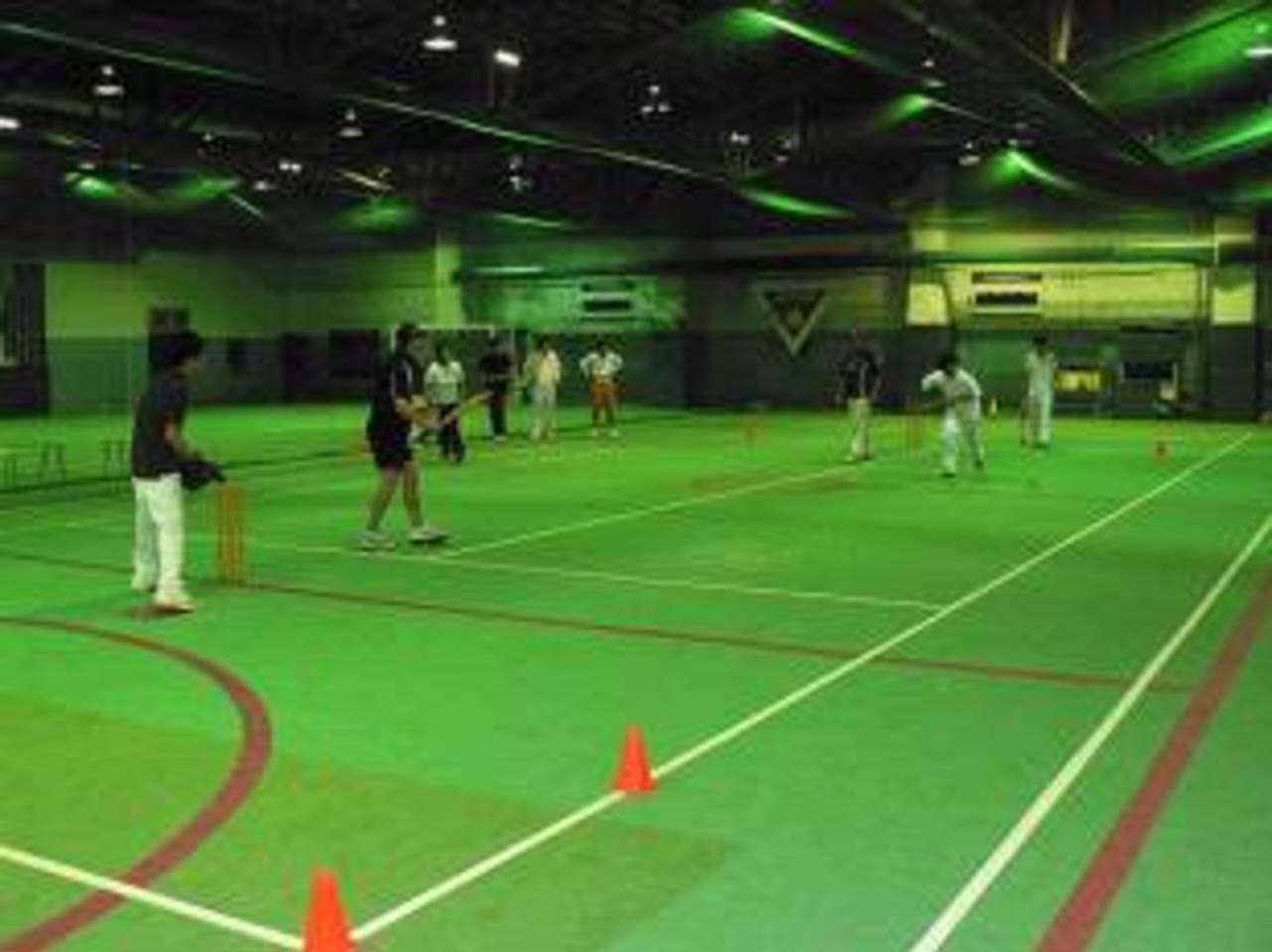A hockey connection, and giving back to Japan
Just to emphasise the point that women are good at multi-tasking, New Zealand have two dual internationals in their World Cup squad
Alison Mitchell
Feb 25, 2013, 11:39 PM

Practice facilities for cricket in Japan • Alison Mitchell/ESPNcricinfo
Just to emphasise the point that women are good at multi-tasking, New Zealand have two dual internationals in their World Cup squad. The captain Suzie Bates is not only a member of the ‘White Ferns’ (the nickname for the New Zealand women’s cricket team) but she has also represented New Zealand in basketball, notably taking part in the 2008 Beijing Olympics with the ‘Tall Ferns.’ Batsman Sophie Devine came very close to a London 2012 Olympic berth with the country’s hockey team, and put cricket to one side to focus on an Olympic dream.
Devine was part of New Zealand’s Olympic training squad but, agonizingly, didn’t make the final cut for the Games itself. She moved to Auckland in March 2012 in order to train, day in day out, with the Black Sticks and stayed with former New Zealand cricket captain Haidee Tiffin. She admitted at the time that the pair had “a few deep and meaningful talks about cricket,” so if Tiffin, who is part of the White Ferns coaching staff at this World Cup, had a hand in encouraging Devine back towards cricket, it has been worth it, as she has made one of the three centuries scored by New Zealand so far in the tournament. This includes the 145 against South Africa in their opening group match. Fast bowler Ellyse Perry is another well known dual international, having represented Australia at the last football World Cup.
**************
Fast bowler Anya Shrubsole must have been smiling after taking career-best figures of 5 for 17 off her 10 overs in England’s Super Six win over South Africa. Her nickname though, is ‘Angry’ as her demeanor is often quite different when she’s racing in to bowl. There are some amusing nicknames knocking around at this World Cup. Offspinner Laura Marsh is ‘Boggy’ - I don’t need to explain why. And ‘Boggy’ happens to rhyme with Australian Jess Cameron’s nickname, ‘Soggy.’ That name stuck from an occasion when she was trying out for the primary school state team at Brunswick Women’s Cricket Ground. She was fielding and a ball got hit into an adjacent creek so she dutifully clambered into the creek to retrieve it, returning to the outfield looking a little damp and disheveled.
***********
Before New Zealand coach Katrina Keenan took charge of the White Ferns, the former World Cup winner spent four years coaching the national women’s team of Japan. Keenan first went to Japan with her husband who was coaching the Toyota Jido Shokki rugby team, which was based near Nagoya, 350km west of Tokyo. They lived in Kariya city and a conversation between New Zealand manager Catherine Campbell and a member of the Japan Cricket Association Board at an ICC meeting, led to Keenan contacting the JCA and eventually taking on a role as Assistant Manager of High Performance in 2007.
Tokyo is the strongest region for cricket in Japan with the sport played in both clubs and universities and so she began commuting some four-and-a-half hours to the capital. The first training session she ran took place on a semi-flat, dirt based surface underneath an overhead expressway, with pylons scattered all over the ‘playing’ area. By the time she left, things had come a long way and she had worked closely with Japan Cricket Association CEO Naoki Alex Miyaji to develop the women’s game in particular. Two-thousand-and-ten was a particularly good year, as Japan’s women won the East Asia-Pacific Women’s Cricket Trophy (regional qualifiers for the ICC Women’s World Cup Global qualifiers) and beat China in the bronze medal match at the Asian Games in Guangzhou. Keenan left a strong legacy, as the team she built the foundation of went on to beat Zimbabwe in the 2011 ICC Women’s World Cup Global Qualifiers in Bangladesh.
She, in fact, played for Japan in the EAP Trophy, putting her in the unique position of having coached and played in qualifiers for the World Cup 2013 and taken a different team into the full tournament itself. A lack of playing facilities was the biggest challenge facing cricket in Tokyo at the time Keenan was there. It is an area that continues to be addressed, with Miyaji confirming to me that in 2007 there were three grounds with a permanent cricket pitch but no training facilities, whereas today there are eight cricket grounds and regular access to two training facilities – one on the roof of an international school in Tokyo and the other at an indoor sports hall just outside of the city.